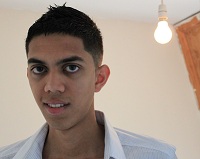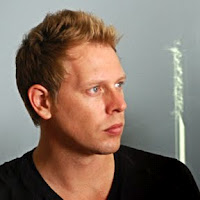Hi Derek & Bryan, and thank you for accepting my interview. Both of you recently started a company together, what is it about?
Derek & Bryan: Thank you for giving us this wonderful opportunity to be interviewed. Well, we named our company Forces, with an ambition of becoming the compelling “force” that put businesses on mobile. Morse is a comprehensive mobile web platform to help businesses go mobile in a few simple steps. Any business can customize and deploy their unique mobile sites in just a couple of minutes. In addition, Forces offers many apps that allow businesses to connect with mobile audiences easily. Our mobile apps include Facebook, Twitter, Email Me, Call Me, Photo Gallery, QR code, and more. Not to forget, every mobile site is optimized for search engines.
Most people think that because of the crisis, it’s impossible to start a successful business nowadays. What exactly does Morces, and how did you come up with the idea?
Derek & Bryan: Financial crisis is a matter of fact, and so does the frustration of mobile consumers. Just by looking out, you see the majority of the people are surfing the web via their smartphone, but how many of these websites are optimized for mobile? Many businesses are not ready for it, and our team is really creative when it comes to putting the best mobile practices for these businesses.
Of course, the world financial crisis does make us worry, but our main priority is not to make money off Morces. We are self-sufficient, but rather, we are more concerned about what Morces can do to help businesses innovate and improve the way they interact with their mobile customers. As a result, Morces became a natural product of our teamwork.
How does it work, and how much does it cost?
Derek & Bryan: Building a mobile site just takes a couple of minutes. To make customize a mobile site, simply drag and drop to the icons/features. The only technical issue that every user needs to do is to copy a set of javascript code and paste it onto their main website to redirect the mobile traffic.
Morces is free, and you heard it right! Users do not need to worry about the limitation because there is none! We do not offer limitations to the bandwidth or the number of pages that users can create because we want to empower every user with the rights to maximize their mobile site.
On what devices will the mobile version work?
Derek & Bryan: We are compatible across all smartphone Operating Systems such as IOS, Android, Blackberry, Symbian, Windows, Bada, Web OS.
So what exactly is the business model you are using?
Derek & Bryan: Freemium business model.
Who should make a mobile site with you? What type of business is in your target?
Derek & Bryan: Any type of business that owns a website should go mobile with us, especially when they are ready to engage their mobile customers. Opportunities given from mobile web technology are huge, and we do not limit Morces to any specific trade. We know this because our users come from all over the world.
What would be the benefits of Morces overusing mobile templates or in-house development?
Derek & Bryan: Cost, time, maintenance. Why spend unnecessary money and time to build a simple mobile site when users can create a professionally optimized mobile site with Morces in just a couple of minutes. Morces help businesses to save development costs and drive efficiency significantly. Moreover, Morces is more than just a mobile site as our platform scales with the market condition, giving users more apps and functionality at a low cost. So, what businesses get is not just a mobile site; instead, they can explore more opportunities and generate business leads. Any changes or amendments can be done instantly with few clicks.
What is most important when creating a mobile version of a site? Functionality? Look & feel? Availability on multiple devices?
Derek & Bryan: We believe all these are equally important and are co-related. First, your mobile site needs to cater to users using multiple devices for them to see it. Then, you need an awesome-looking design to grab the attention of a user; after that, to attract them in to interact, you need great functionality.
As a mobile user myself, I noticed that most of the sites are yet to provide a mobile version. Why do you think business owners don’t realize the potential of having a mobile version?
Derek & Bryan: We believe that is because there are still no mobile web platforms that actually succeed in empowering businesses to gain more leads. Just take a look at Facebook Page; businesses are jumping onto the Facebook platform because it’s a proven way for them to interact and engage their customers, to gather more feedbacks, etc. Once they saw the beauty of having a mobile site, we are sure they will jump on the bandwagon in no time.
Coming back to the business model, what exactly were the steps to start the business? How should an entrepreneur go from having an idea to actually having the first customer? I know this is the hardest part!
Derek & Bryan: We went from our first discussion on our big plans and then quiet for a few months. We went on separate ways, work on different means and the different tasks before we came back, and put the entire puzzle together. It is pretty cool because we are purely working based on trust and instinct that our team member works. When we came back, we got everything, and we simply sell. Perhaps that is one of the reasons why we can overcome the toughest obstacle. At our current stage, we have to support one another closely to put the train across the bridge.
Also, most entrepreneurs are afraid of investing too much money into an idea before seeing the first sale. I guess the first 6months to a year are just work, work, work, and more work. How can you know early your idea will fly and make sales?
Derek & Bryan: Vision, Passion, and Belief. No one can predict the future. Just look back in 2004. Does Mark Zuckerberg know that Facebook will be worth so many billions now? You just know you need to try and take the first step; you need to believe in your vision, and you need to have the determination and passion for working towards achieving it. If you’re afraid and hesitate about taking the first step, then entrepreneurship might not be the one for you. Entrepreneurs make ideas work.
By the way, how old are you?
Derek & Bryan: We are both 23 years old.
What would be your elevator pitch?
Derek & Bryan: Morces is a revolutionary product.







